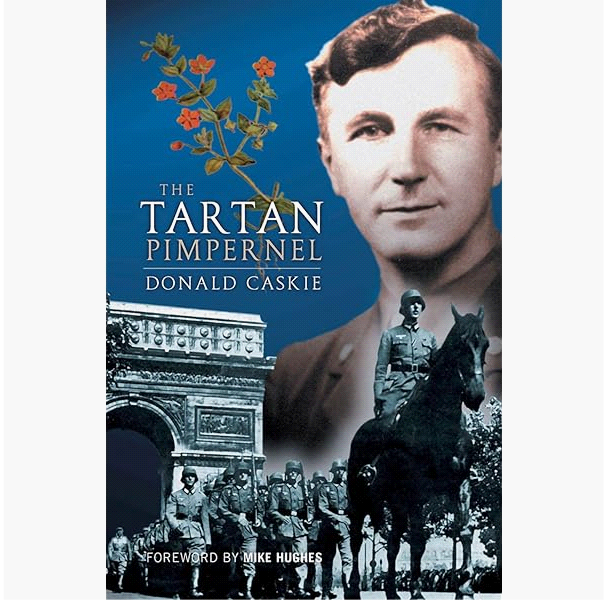
Whitehill Former Pupils’ Club

Made With Serif WebPlus.

Best viewed with Chrome
|
Reverend Dr Donald Caskie |

The Tartan Pimpernel
He is known to many as the Tartan Pimpernel, a war hero minister who helped thousands of British prisoners of war escape a hilltop fort during the Second World War, but to Kintyre’s Gordon Caskie, Reverend Dr Donald Caskie is known simply as ‘Uncle Donald’.
It is 80 years this month since the battle of St Valéry-en-Caux ended with the capture of 10,000 soldiers from the 51st Highland Division. One of the men captured was Captain Derek Lang, an army officer who later became Lieutenant General Sir Derek Lang.
Sir Derek escaped fairly soon after the capture at St Valéry in 1940 but was captured again a couple of days later. He was marched to Belgium, near the German border, and he and few others managed to jump from the battlements of the prison barracks at Tournai and escaped.
His daughter, Sarah Hunt, said: ‘One way or another he managed to get to Marseille where he met Donald Caskie who ran a Seamen’s Mission and he eventually got stowed away on a ship and lived to see another day.’
Sir Derek, who was Commander-in-Chief Scotland from 1966 to 1969 and Governor of Edinburgh Castle, wrote a book about his wartime exploits called Return to St Valéry, which was published in 1975. In it he recounts meeting Dr Caskie at the Seamen’s Mission which had a dormitory for 50 to 60 people, a billiard room, meeting rooms and a small chapel.
The minister, who was nicknamed the Tartan Pimpernel, was leading the Scots Kirk in Paris when the Germans invaded France in 1940 and was forced to flee the city.
He decided not to return home to Scotland as advised by the church because he felt he would be more use to the war effort if he stayed in France.
Dr Caskie, a crofter’s son from Islay, headed to Marseille where his official role was that of a Padre, providing pastoral support to British civilians. But in reality he lived a double life and secretly worked with the Resistance to liberate Allied troops under the noses of German and Italian spies and French Fascist paramilitaries.
Dr Caskie and his French Resistance colleagues masterminded the escape of thousands of RAF prisoners through sewage pipes from Fort de la Revère, near Nice, in 1942.
Dr Caskie, whose code name was Monsieur Le Canard – Donald Duck – was recruited by British intelligence officers and told that his mission was the last link of a chain of safe houses that they had set up, which stretched from the beaches of Dunkirk to Marseille.
He was eventually arrested and imprisoned by the Gestapo and sentenced to death. His life was only saved through the intervention of a German pastor and he spent the rest of the war in a prisoner of war camp.
Speaking to the Courier this week, his nephew Gordon said: ‘Uncle Donald was something else! They reckon he saved between 2,000 and 3,000 servicemen. It’s quite a fascinating story. He had a tough time, but he survived and he lived to be 82.’
Gordon and his brother Tom travelled to France in October last year to witness the unveiling of a memorial plaque at the fort near Nice in honour of Dr Caskie’s work.
Dr Caskie’s autobiography, The Tartan Pimpernel, details his exploits during the Second World War, but Gordon reveals it is not something he talked about often.
Gordon, who was also born on Islay and lived in several places before settling in Kintyre in the 1990s, said: ‘Uncle Donald was a quiet man, but very sociable. He was brave but my attitude is that any man in similar circumstances might have done something similar.
‘He was offered ferry trips out of France – he was supposed to be on the last ship out of the country as the Germans came into Paris, but he felt his duty was to stay and see what good he could do. He had no other ties – the church in Paris was his main thing. He left the key with the shopkeeper next door and after the war he walked back in and the shopkeeper said: “Oh, there’s your key back.” The full story is in his book.’
Dr Caskie officiated at Gordon and his wife Sheena’s wedding in Paisley in 1960.
‘My experience of Uncle Donald is not about what he suffered in the war, it’s about the man as we knew him,’ Gordon said.
‘In 1947 my father – my uncle’s older brother by two years – bought me a train ticket to Paris for a month’s summer holiday with Uncle Donald. I arrived in Paris late at night and had no francs so I rattled my uncle’s door at some unearthly hour to rouse him from his bed to pay the taxi. My father’s telegram to say I was on my way to 4 Rue Piccini arrived the next day!
‘I visited again in 1952 or 1953 when some school friends and I, on a cycling tour in France, spent two nights with him in his flat.’
Dr Caskie returned to Scotland after a spell in Paris and died in 1983. He is buried at Bowmore on Islay.
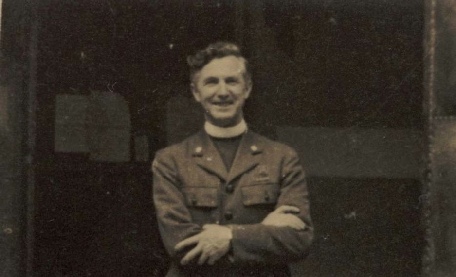
Rev Dr Caskie wrote a book about his contribution during the Second World War, The Tartan Pimpernel (Picture: Church of Scotland).
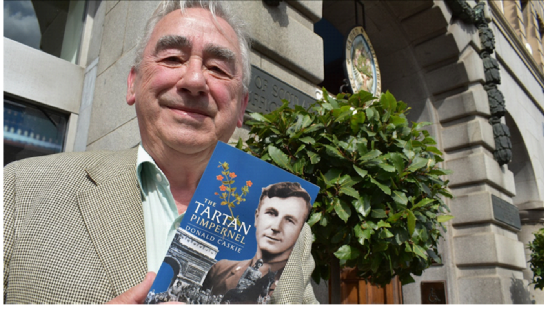
THIS IS YOUR LIFE
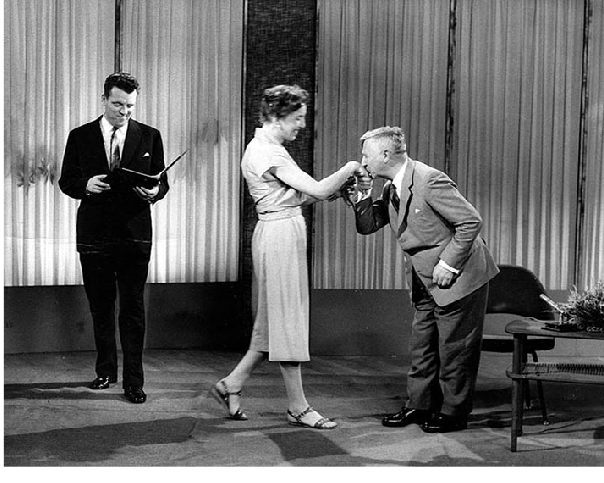
The Reverend Dr Donald Caskie, Church of Scotland minister, was surprised by Eamonn Andrews in the foyer of the BBC Studios in Edinburgh, having been led to believe he was there to record a different programme.
Commemoration Service in Paris
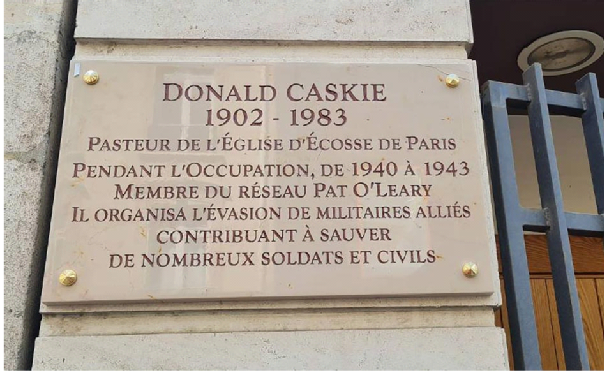
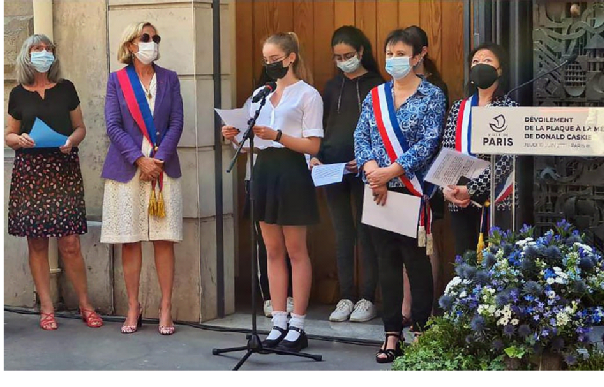
Local school pupils read aloud in English and French extracts from Dr Caskie's book, The Tartan Pimpernel, which tells how he fearlessly worked with the French Resistance to help trapped or imprisoned airmen, seamen and soldiers escape Nazi-occupied France.
Civic Recognition
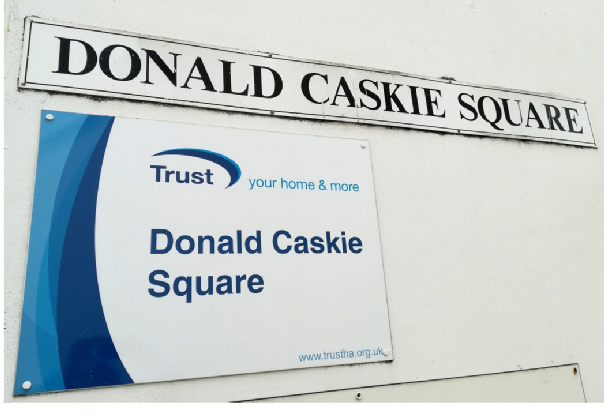
Donald is buried at Kilarrow Church in Bowmore – a stone’s throw from Donald Caskie Square.
